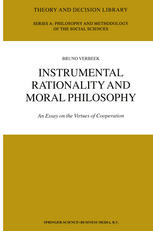

Most ebook files are in PDF format, so you can easily read them using various software such as Foxit Reader or directly on the Google Chrome browser.
Some ebook files are released by publishers in other formats such as .awz, .mobi, .epub, .fb2, etc. You may need to install specific software to read these formats on mobile/PC, such as Calibre.
Please read the tutorial at this link: https://ebookbell.com/faq
We offer FREE conversion to the popular formats you request; however, this may take some time. Therefore, right after payment, please email us, and we will try to provide the service as quickly as possible.
For some exceptional file formats or broken links (if any), please refrain from opening any disputes. Instead, email us first, and we will try to assist within a maximum of 6 hours.
EbookBell Team

0.0
0 reviewsMany academic authors incur debts in the production of their work, many of which are intellectual. I am no exception. One of my intellectual debts is to three remarkable books, which formed the starting point for my thinking about norms. The first of these books is well known among philosophers: David Lewis' Convention. In vintage Lewisian prose, the book gives a lucid and convincing conventionalist analysis of semantic norms. The second 1985 dissertation Wederkerige book is Govert den Hartogh's Verwachtingen (Mutual Expectations). Partly because it was written in Dutch - my native tongue -partly because of the occasionally impenetrable style, it never got the attention it deserves. In that book, Den Hartogh extends Lewis' analysis of semantic norms to moral norms. Den Hartogh introduced the notion of cooperative virtues that is the focus of much of this book. The third book is a book on economics, largely ignored by economists, which only lately has started to receive some recognition among philosophers: Robert Sugden's The Economics of Rights, Co operation and Welfare. Sugden's book explains the emergence and stability of norms in terms of social evolution. Though all three books develop a of norms, their arguments and constructions are conventionalist account very different. Lewis and Den Hartogh take the picture of rational man deliberating about his course of action very serious; Sugden rejects this picture as unrealistic and unnecessary.